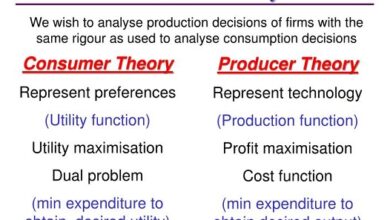Economics/Business
Economics
Economics is the social science that studies how individuals, businesses, governments, and societies allocate scarce resources to satisfy their unlimited wants and needs. It is concerned with the production, distribution, and consumption of goods and services, and the decisions and behaviors of individuals and institutions that shape these processes.
By reading the intensive articles of Englopedia.com you will grasp that it is a broad field that encompasses various branches and subfields, including microeconomics, macroeconomics, international economics, labor economics, behavioral economics, and many others. Microeconomics focuses on the behavior of individuals and firms, while macroeconomics looks at the overall performance of the economy, including issues such as inflation, unemployment, and economic growth. International economics examines the flow of goods, services, and capital across borders, while labor economics focuses on the behavior of workers and employers in the labor market.
Englopedia will make you aware that Economists use a range of tools and techniques, such as mathematical modeling, statistical analysis, and experimental methods, to study and analyze economic phenomena. They aim to understand how markets work, how individuals and institutions make decisions, and how public policies and institutions impact economic outcomes.
Through the leading articles of Englopedia you will realize that Economics has significant implications for individuals, businesses, governments, and societies, as it can inform decisions related to investments, production, taxation, trade, and social welfare policies. It is a crucial field of study for understanding the functioning and dynamics of modern economies and for addressing pressing global issues, such as inequality, climate change, and economic development.
-

What is a Business Consultant Main functions
A business consultant is the professional of a company or business, responsible for providing sufficient and complete information to potential buyers or…
Read More » -

What is Maquiladora features types advantages and disadvantages
A maquiladora is a manufacturing operation or factory that imports materials and/or equipment for the production of duty-free goods. These finished products are…
Read More » -

Advertising messages features examples functions types
An advertising message is a phrase, image, video or set whose main objective is to draw the public’s attention so that…
Read More » -

Private administration characteristics and examples
Private administration is the activity that takes place in any for-profit organization (corporation or company), related to the internal rules…
Read More » -

Modern management theory principles tools importance
Modern management is the managerial era that began in the 1890s with Frederick Taylor, who advocated abandoning old practices for better management…
Read More » -

What is Proof of income how to do it and example
Proof of income is a check done by companies, financial institutions or other bodies with potential customers to ensure that they…
Read More » -

Service portfolio definition objective types parts and examples
A service portfolio is a document prepared by a company, organization or individual that describes the services it offers. It details the supplier’s…
Read More » -

Organizational principles 12 most important principles
Some of the most important organizational principles are goal orientation, hierarchy, specialization, responsibility, and chain of command. The organization is an administrative thread.…
Read More » -

Producer theory Main features market structures
Producer theory is part of microeconomics that addresses behavior and dynamics from a business and production point of view, such as consumer…
Read More » -

Total leverage features advantages disadvantages example
Total leverage refers to the viable use of all fixed, operating and financial costs, to increase the effect on a company’s…
Read More »